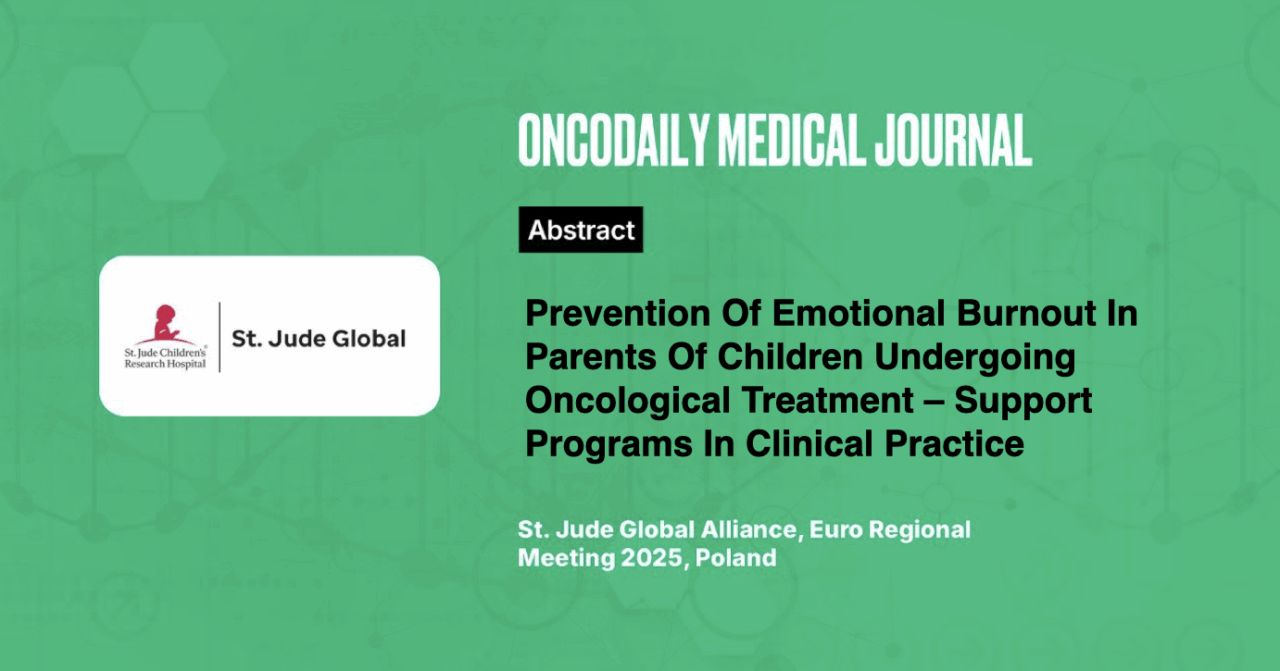Prevention Of Emotional Burnout In Parents Of Children Undergoing Oncological Treatment – Support Programs In Clinical Practice
Abstract
Introduction: Parents of children undergoing oncological treatment often experience significant emotional strain, resulting in a high risk of emotional burnout, which can adversely impact both their well-being and the psychosocial environment essential for the child’s recovery. For this reason, therapeutic interventions targeting parental support have become a vital component of pediatric oncological care.
The WPROST (Psychological Support for Oncology Families Seeking Therapy in a Therapeutic Group) program, implemented at the IMiD and the Polish Sarcoma and Melanoma Patients Association, is an interdisciplinary initiative designed to support parents during their child’s cancer treatment. This study explores the role of WPROST in preventing emotional burnout in patients’ families.
Methodology: The WPROST program consists of twelve sessions focusing on psychoeducation, emotional regulation, peer support, and stress management. The group is led by psychologists who work with families on a daily basis, understand their needs, dilemmas, and problems, and structure the topics of meetings and workshops to be compatible and closely related to the reported difficulties. Qualitative data for this study were obtained from semi-structured interviews with participants to assess subjective improvements in coping mechanisms and emotional well-being.
Results: Forty-two parents and grandmothers participated in the first six meetings. Participants showed reductions in emotional exhaustion and perceived stress levels. Qualitative analysis revealed themes of improved emotional resilience, strengthened familial relationships, and enhanced capacity to navigate the challenges of caregiving. Parents reported the therapeutic group setting as instrumental in reducing feelings of isolation and fostering a sense of community.
Conclusion: The WPROST therapeutic group program is an effective intervention for preventing emotional burnout in parents of children undergoing oncological treatment. By integrating psychoeducational support and emotional coping strategies, the program contributes to the psychosocial well-being of affected families.





